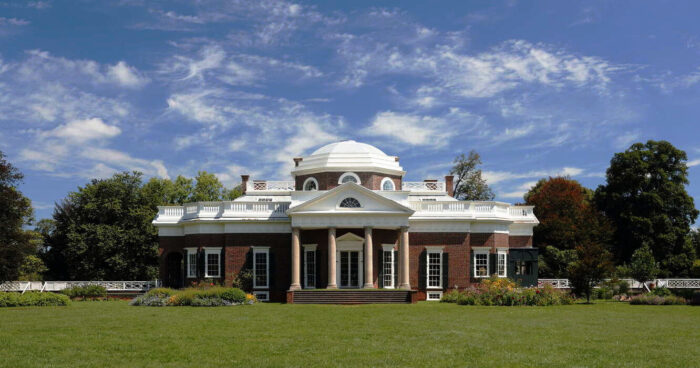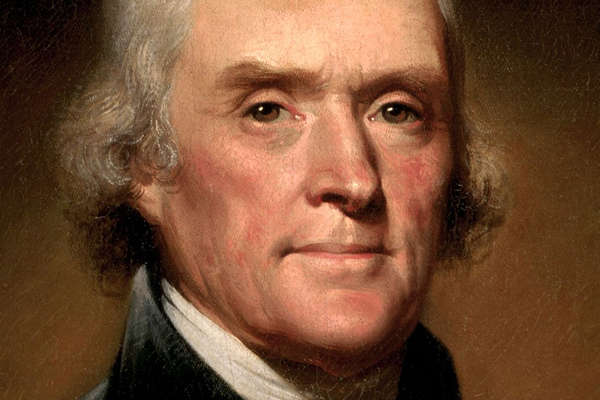Climate Week 2024 Was Monticello 1776
I recovered from a week of events known as Climate Week 2024. It felt like 1776 Monticello, Thomas Jefferson’s plantation home. Before reading why, I should tell you that I shared the views below with several attendees of several events and they all agreed.

Climate Week brought bold pronouncements from CEOs, government representatives of cities, states, and nations, and cultural leaders. They said we could solve our environmental problems if other people implemented changes they themselves weren’t. Nearly all I spoke to flew to New York, then arrived at the events by Navigator.
Jefferson wrote some of history’s most powerful words on freedom. Washington backed up those words with force and Madison and peers with a Constitution. They said what others should do, but didn’t free their slaves.
Jefferson fueled his opposition. His opponents said (and still say), “He didn’t mean all men are created equal. If he did, he wouldn’t own slaves. He meant all white men.” Today’s would-be leaders are fueling their opposition too, who say, “They don’t mean we should actually live sustainably. If they did, they would at least try.”

The would-be leaders could respond, “But my work is so important, it justifies all my polluting and depleting.” Well, who considers their work unimportant? Their personal rationalizations justify everyone to continue polluting and depleting, funding more pollution and lobbyists.
It’s tempting to suggest I’m creating a false equivalence, but I’m not comparing pollution with slavery. I’m talking about effectiveness of would-be leaders at the top of a dominance hierarchy. Still, comparing scale is important: The Lancet reports polluted air annually kills 9 million people—the number of people enslaved in the US. Today’s polluting culture kills annually what slavery took centuries to reach.
Nor am I criticizing, suggesting a purity test, suggesting only individual action, questioning their motives, or charging them with hypocrisy. I want America (and the world) to reach our potential. I’m speaking of credibility and integrity, without which it is impossible to lead.
Today’s would-be leaders can suggest technology might save us, but technology isn’t good or bad. It augments the values of the culture using it. Eli Whitney’s cotton gin was designed to reduce labor, but that culture didn’t value less labor. It valued power and profit and got them, no matter who suffered. Our technologies—from EVs to nuclear and more—will get more of what we’ve been getting.
Am I pessimistic, giving up, sacrificing quality of life, or returning to the Stone Age? The opposite. I’m suggesting what will work: to change culture first, then pursue tactics like efficiency. To restore lost values like stewardship and the Golden Rule. When we choose to buy an airplane ticket, large SUV, or takeout, we don’t ask who suffers for it. We ask if we have the time and money.
Jefferson’s inaction led to millions more enslaved. Not even his wealthiest slave-owning peers who might have only cared about themselves were safe from the Civil War. Today, credible projections say we are creating conflicts from which today’s billionaires’ bunkers cannot protect them either.
How to change culture? One start, as Admiral McRaven said: “If you want to change the world, make your bed.” But don’t stop there. Beyond practicing discipline, we must life our values, even—especially—when it’s hard. Then we’ll wish we had before, no matter how hard to imagine.
Integrity is its own reward. Beyond restoring the credibility to lead, it reveals the myths that justify living unsustainably. They come from the same mental conflicts that slaveholder’s rationalizations did. They tried to convince themselves that slavery is “instead of an evil, a good—a positive good.”
I speak from experience. My years of experimentation living more sustainably led to finding unexpected joy, meaning, and purpose in disconnecting—the opposite of what even environmentalists suggested. I unplugged my Manhattan apartment from the electric grid in 2022, not filling a load of garbage at home since 2019, and avoiding flying since 2016. The point isn’t the impact of individual actions, but the ability to lead others, which we can do when liberated all that internal conflict. People in my sustainability leadership workshops say, “This is what I’ve been looking for my entire life!”, then learn to lead their own workshops.
Leadership that spreads, wins.
The name Robert Carter III is little known today. In 1791 he began freeing his slaves—eventually 500, the most of any American—including giving them land. He knew Jefferson, Washington, and Madison but didn’t try to influence them.
Imagine his integrity with their influence and you see what we could achieve today: Might they have averted the Civil War, maybe including something like the Thirteenth Amendment in the Bill of Rights? Might they have seen that what looked like sacrifice would actually unite a house divided?
What solutions do we fail to see because we are too busy rationalizing, fighting opposition we fund, including our Climate Weeks?
Read my weekly newsletter

On initiative, leadership, the environment, and burpees